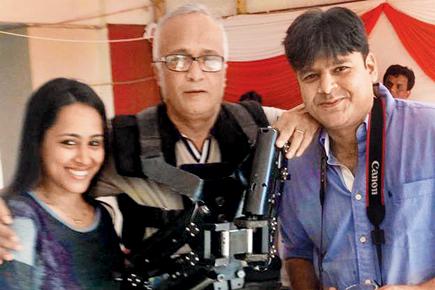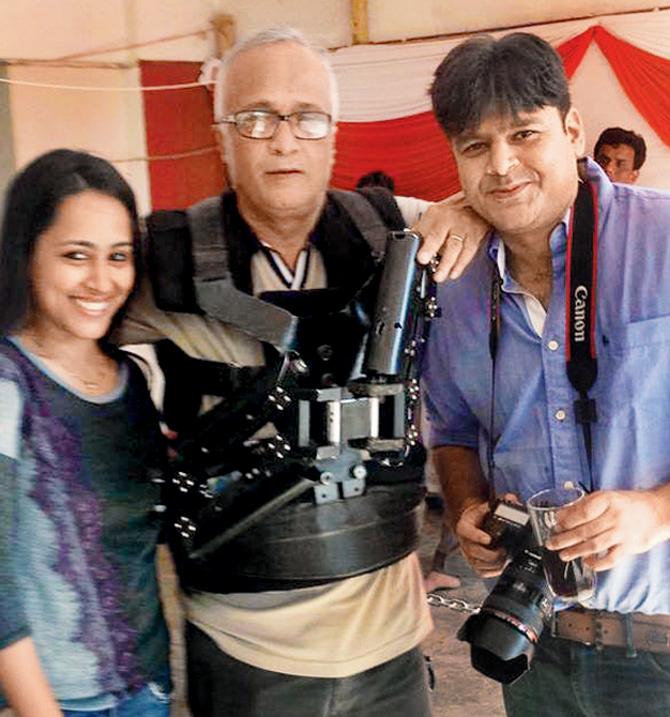Pioneer of steady movie camera shooting in India to conduct a 10-day workshop

Deep Pal (centre) with the steadicam around his waist
![]() With new demands in filmmaking, it is becoming increasingly challenging for a cinematographer to produce shots that are more realistic and creative. While moving around to get that perfect angle or to follow the subject of a documentary, it becomes difficult to overcome unsteadiness of shots.
With new demands in filmmaking, it is becoming increasingly challenging for a cinematographer to produce shots that are more realistic and creative. While moving around to get that perfect angle or to follow the subject of a documentary, it becomes difficult to overcome unsteadiness of shots.
This challenge is overcome with the help of an instrument called the steadicam. This camera stabiliser works as a mount for motion picture cameras that isolates it from the operator's movement. It allows for a smooth shot, even when moving quickly over an uneven surface.

Deep Pal (centre) with the steadicam around his waist
This technology arrived in India a few years after it was invented by cameraman Garrett Brown in the USA, and applied famously in the 1989 Telugu blockbuster Shiva by cinematographer Deep Pal. He has subsequently used the technology in over a hundred films and other projects and now will impart his knowledge of handling the instrument to those who want to master the technique of advanced camera work at a 10-day workshop organised by an entertainment agency, Join Films.
"In one way, it is the job of a coolie of the railway station, managing the weight of the instrument and the camera. And in another way, it is a highly creative and satisfying endeavour when you realise that you are instrumental in giving shape to the directors vision," Pal says.
He adds that with increasing popularity of this form of shooting there is a high demand for the specialists of this instrument and every major feature film now is shot with steadicams. "Television shows like Jhalak Dikhhla Jaa use steadicams too," he informs.
The cinematographer points out that though very few documentary makers actually use steadicam for their shoot because it exceeds the budget; however, the instrument can add much value to a documentary. "Often, the cameraperson needs to cover unplanned movements for a documentary and this can be done very well with a steadicam. The problem is that the rent for a day for this instrument is Rs 30 thousand to Rs 50 and costs Rs 20 lakh, making it unaffordable for most documentary makers," he says. After attending the 10-day workshop, the students will be ready to go out and work in the industry, asserts Pal. To ensure that the students can master the techniques, he offers them a steadicam for a month to practice on.
"Every slip while shooting a film costs a lot of money and you can't afford to make a mistake. So I want the students to be perfect when they start working," he says.
From: June 15
At: Joinfilms, 144 Kuber Complex, Andheri (W)
Call: 7869501685
Email: info@joinfilms.com
 Subscribe today by clicking the link and stay updated with the latest news!" Click here!
Subscribe today by clicking the link and stay updated with the latest news!" Click here!







